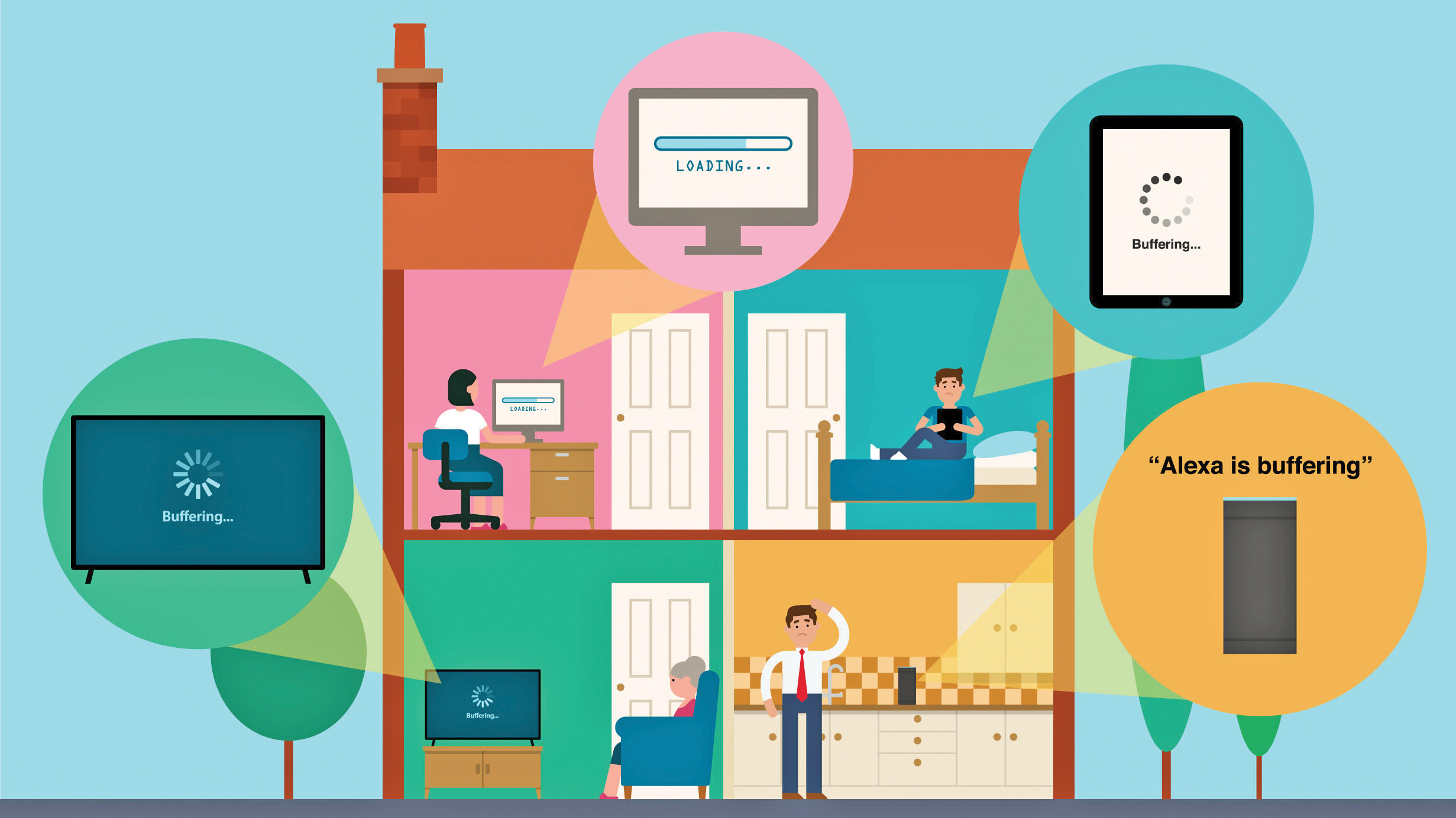Is your broadband coronavirus-ready?
It’s not a stockpile of toilet rolls that you should be investing in to survive lockdown in comfort


Amid all the coronavirus-prompted panic-buying of toilet rolls and pasta, there is one essential that I worry people may not have enough of: broadband bandwidth.
We’re all already seeing a lot more of the inside of our homes, with people being forced to work from back bedrooms, kids attempting to home school, and mass public events and holidays cancelled for the foreseeable future
While parents are firing up laptops, trying to grab files off their workplace network, the kids are bored out of their skulls, streaming Netflix around the clock or downloading 80GB patches for Fortnite.
Prime minister Boris Johnson’s comeback speech on Monday indicated we’ll be in this situation for some time yet, so if you haven’t already, now’s the time to question whether your broadband is up to scratch. While most home-working tasks – email, surfing the web, the odd Skype call – don’t require much bandwidth, it’s the streaming services the kids (and, ok, maybe the adults too) are hooked to that will put the strain on your connection. An HD stream from Netflix needs 5Mbps, while game-streaming services require at least double that. If you have even two of those on the go at the same time – a pretty typical peak-time scenario in my house – your basic “fibre” broadband connection is going to start feeling the strain. With four or five people all trying to work and play at the same time, it’s likely to get patchy.
The good news is that upgrading your broadband can be a relatively pain-free – if not cost-free – process. If you’re on a basic 40Mbps fibre-to-the-cabinet connection (what BT Broadband calls ‘Infinity’), then it’s very easy to upgrade to double that speed (or ‘Infinity 2’). That kind of boost doesn’t require any new equipment or a visit from a BT engineer because your broadband provider can simply flick a switch to unleash the new speed almost instantly. The same is true of many Virgin Media speed bumps – it’s just a case of taking the artificial brakes off your line and delivering the faster speeds.
There are a few caveats to be aware of, though. First, if you live some distance from your local fibre cabinet, your line simply might not be capable of the faster speeds. If you’re currently on a 40Mbps connection and don’t get anywhere near that, even during quieter periods, then an upgrade to the 80Mbps service is unlikely to improve matters.
The other major factor is network congestion. If everyone is working from home and all their kids are streaming round the clock, then overall network traffic is set to rocket. The normal evening rush-hour will become the new norm. There is every possibility that – even if you do upgrade your line – the overall weight of traffic will drag your speed back down.
Get the ITPro daily newsletter
Sign up today and you will receive a free copy of our Future Focus 2025 report - the leading guidance on AI, cybersecurity and other IT challenges as per 700+ senior executives
RELATED RESOURCE

The IT Pro Podcast: Can tech survive Coronavirus?
COVID-19 is sweeping the globe, but how much will it affect the tech industry?
I don’t want to encourage panic broadband buying any more than I want you to drive down to Tesco and empty the shelves of Andrex or baking goods. But a relatively modest price increase to potentially double your broadband speed and see you through the next couple of months of quarantine: it might be the most worthwhile tenner you’ve ever spent
Barry Collins is an experienced IT journalist who specialises in Windows, Mac, broadband and more. He's a former editor of PC Pro magazine, and has contributed to many national newspapers, magazines and websites in a career that has spanned over 20 years. You may have seen Barry as a tech pundit on television and radio, including BBC Newsnight, the Chris Evans Show and ITN News at Ten.
-
 Bigger salaries, more burnout: Is the CISO role in crisis?
Bigger salaries, more burnout: Is the CISO role in crisis?In-depth CISOs are more stressed than ever before – but why is this and what can be done?
By Kate O'Flaherty Published
-
 Cheap cyber crime kits can be bought on the dark web for less than $25
Cheap cyber crime kits can be bought on the dark web for less than $25News Research from NordVPN shows phishing kits are now widely available on the dark web and via messaging apps like Telegram, and are often selling for less than $25.
By Emma Woollacott Published